- Home
- Peter Carey
The Chemistry of Tears Page 14
The Chemistry of Tears Read online
Page 14
I thought, surely he wants to see the cornflower blue.
“Brought it home for some tests?” he asked.
I smiled.
“Crazy bugger,” he said.
“Yes.”
“Swap you,” he said, also smiling. I liked his crinkled eyes. I imagined him playing poker. Indeed the envelope he now produced was the size of a playing card. Inside I discovered one of those cardboard-mounted Victorian portraits.
“Your man,” he said, making me remember why I liked him—that impish quality. “This is the man who commissioned your swan.”
He was looking at me strangely. I thought, yes, he has actually taken the time to read the notebooks. He had read them at the very start.
“His name was Henry Brandling,” he said.
“Oh, how do you know?”
Again that smile.
He could not have the least idea of how deeply invested I was in Henry. He would have expected me to be curious, but how could he possibly anticipate what it meant to me, to find my author so very tall and handsome, holding a baby in his arms? I was happy, uplifted, to meet him in this way, to understand his nobility and tenderness.
“Percy,” I said.
“Henry,” he corrected. “Henry Brandling.”
“The child.”
“Oh, I know nothing of the child.”
There was something rather odd about the photograph, and I removed it from its plastic to examine it more closely.
“It was not uncommon,” Eric said.
“You got this from where?”
My visitor laid his hand flat against my back. “It’s rather awful isn’t it?”
Only then did I understand—the child in the man’s arms was the product of a Victorian mortician’s art.
“This is bullshit,” I said.
“Cat, Cat, what on earth is the matter?”
He reached out his hand towards me, and suddenly he appeared not kind or crinkly, not impish at all. I thought, why are you trying to destroy me?
“Cat.”
“Never call me Cat. Not ever.”
“Catherine.”
“Go, go.” I dragged out his coat and threw it at him. He reached for the blue block. I snatched it back.
Hours after he left I discovered the date on the verso and finally realized that this was not Percy but his sister Alice whose name the grieving Henry Brandling had mentioned in connection with a clock.
I BEGAN TO READ the newspapers again. I learned that the Americans have made a robot to teach autistic children. In many respects it is superior to a human being. That is, being a robot, it never becomes emotionally exhausted; it never loses patience; tears and rage do not press its buttons.
The robot is called KayKay. I am not sure why. It does not attempt to hide its wiring and other innards. The report said that children swarmed it when it first appeared at a “facility” in Austin, Texas. At the end of the first day, a boy with Asperger’s syndrome yanked its arms off.
The journalist seemed a little too happy about the arm-yanking, but the company said it was a “learning curve.” By the next public exposure, which was reported in the Guardian, KayKay had its arms repaired. Now, when KayKay cried, the little Aspies did not “hurt” it any more. If the sobbing continued, they then gave the thing a hug.
Catherine wants KayKay.
KayKay would move on wheels, tracking Catherine throughout the flat, approaching indirectly and never entering “personal space.” KayKay would say “Uh huh” (an encouraging sound in American) when Catherine drew near. When Catherine moved away, KayKay would say “Aw” (American for disappointment).
Eric Croft must have wearied of my tears and rage, I thought. Who would blame him? Who would not prefer the company of normal people?
I sat at the kitchen table, peering into the wavering field of marks left by Henry Brandling’s pen. When I was above it, looking down into the lines, I could see flickering candles, the deep shadows of the “not here.” The distance was immense but I saw Henry’s sad dark eyes watch the other inhabitants of the room at the sawmill in Furtwangen—four or five of them—assembling tiny links of chain.
As yet Henry Brandling had no clue how the chain would serve the swan.
Catherine, on the other hand, had touched the chain, had tightened it, compelled it to move the skeletal neck of the swan on the fourth floor of the Swinburne Annexe.
In the firelight Henry Brandling’s eyes were unsettled and afraid. He had lost one child already. How the minutes must be, each one an agony.
Each of the Germans had a small assembly tool, not much more than a support system for a single groove into which the tiny component parts of chain were fitted so the rivet could be slipped into place and hammered home. The boy was fastest but Sumper, with his huge hands, was the most astonishing to behold. He was covertly competing with the child.
As so often, Henry could do nothing but watch. He did this with a terrible intensity that bore no relationship to the nature of manufacture being enacted. He crouched on a three-legged stool by the dying fire.
Might Henry Brandling have anticipated Catherine?
He anticipated someone would watch him through the wormhole, that was clear. He wrote for that person. He thought constantly of the moment when that chain would animate a swan that he stubbornly referred to as “my duck.”
I thought, he is lying, but not to me.
On Kennington Road the car tyres were hissing. The oxidized lines once made by Henry Brandling’s pen evoked weeds waving under water. The fairytale collector and the silversmith slowly melded together. They were the same person as I had already guessed. If Henry was not lying to me, then to whom was he lying? To God? I returned to Furtwangen and turned the page.
Sumper spat a hissing glob into the fire. “Listen to me more carefully,” he said to the fairytale collector. “It is the nature of science,” he said, “that what is true is always unacceptable to people.”
And of course I, Catherine, agreed with him. Which of us would not?
“I’ll tell you a story that is true,” the fairytale collector offered.
The child looked at Sumper imploringly. Even so his little warty fingers “never paused.” He was like a bird feeding, constantly pecking at a bowl of chain links.
The fairytale collector administered a light tap with a delicate black hammer. “On the exactly true date of 15 April 1614, a murder was committed in the old part of Salzwedel just off the street leading to St. Ann’s Convent.”
Carl screwed up his eyes.
The fairytale collector had no mercy. He described how the murderer’s hands were cut off and how he was tortured with red-hot pincers and dragged to the place of execution and placed on the wheel upside down. It was “miraculous” and horrible, according to the fairytale collector, to see how the hand with which he had committed this terrible deed continued to bleed for three days on the wheel.
“Why am I trapped here?” cried Sumper who did not seem to be aware of the child’s distress. “How could this happen to me, forced to listen to this chaff?”
For that he had Catherine’s sympathy. He was worthy of a better conversation. She had a better dialogue with him every day at work.
I was there close by him, by the four of them as they assembled the fusee chain, or four fusee chains. I saw them grow at an extraordinary rate, click, clack, tap, so swiftly. There was a long period with no word spoken, and the spiky sentences, brimful of awful anxious feeling, stretched on across the page. Finally it was Sumper who addressed the “awful little weasel.”
“You have heard of Sir Albert Cruickshank.”
Catherine had not.
Sumper left the table. The angelic boy “quietly compared” the two lengths of chain, his and Sumper’s. He whispered to his mother. The mother removed Sumper’s chain from her son’s celestial hand. She returned the chain to its place in the clockmaker’s assembly tool. No sooner had she done so than the clockmaker returned with “a much-stained
” book in his hand. He clipped Carl lightly across the back of the head and both of them burst out laughing.
Catherine read the title: Mysterium Tremendum.
“The author is Sir Albert Cruickshank,” Sumper told the fairytale collector. “He holds the Lucasian Chair of Mathematics at Cambridge. He is a fellow of the Royal Society and the inventor of the Cruickshank Engine.”
The fairytale collector affected to sigh, but the child looked expectantly towards the book, its Latin title inlaid with gold and glowing in the firelight. It was, Henry intuited, a familiar hymn or song.
“M. Arnaud,” said Herr Sumper, “Mysterium Tremendum was written at Cambridge University, and do not fret if you have not heard of that institution. It exists beyond your tiny world.
“ ‘I then begged of my guide,’ ” Sumper read from the volume, “ ‘that he provide a glimpse of those other higher intellectual beings and the modes of their thought and their enjoyments. These are creatures far superior to any idea your human imagination can conceive.’
“ ‘I was again in motion,’ ” (Herr Sumper stood), “ ‘I saw below me lakes and seas on the surface of which I beheld living beings which I cannot properly describe. They had systems for locomotion similar to those of the sea horse. They moved from place to place by six extremely thin membranes, which they used as wings. I saw numerous convolutions of tubes, more analogous to the trunk of the elephant than to anything else, occupying what I supposed to be the upper parts of the body. Here my astonishment became disgust. Such was the peculiar character of the organs.’ ”
Oh dear, Catherine thought, oh dearie dearie me. It was as if she had opened her front door to a Jehovah’s Witness. But the boy was totally at home. His red mouth was open. His hair “caught the candlelight” as he reached for his mother’s hand with his long thin fingers, “pale, plastic, bendy as the necks of birds.”
“You,” Sumper pointed to Henry Brandling, “are in the same state as a fly whose microscopic eye has been changed to one similar to a man’s.”
The boy cast on Henry Brandling “a beautiful and pitying smile.” And then he mouthed the words as Sumper read: “ ‘YOU ARE WHOLLY UNABLE TO ASSOCIATE WHAT YOU SEE WITH WHAT YOUR LIFE HAS TAUGHT YOU.’ ”
Catherine shivered. What to think of this? Had the great mechanic also been a mystic?
Sumper read: “ ‘Those beings who are before you now, who appear to you almost as imperfect as the lowly zoophytes, have a sphere of sensibility and intellect far superior to the inhabitants of this earth.’ ”
At the time it did not occur to me, not for a moment, that this was really written by a man of science. I had no idea how much Cruickshank owed to Humphry Davy’s Consolations in Travel. I did not think of the Royal Society but rather C. S. Lewis on an acid trip. And this from Sumper, whose work I trusted and admired all through my working day.
“You have no idea of where you are,” Sumper told Brandling. “You have no idea of what will happen here. In this very room,” he said, “you have been anointed as a courier, and you will play your role never knowing what you have done, or imagining you have been the brave agent in a history you will never read.”
Henry reported the “full furnace heat of madness” and then a fright that “mak’st my blood cold, and my hair to stare.”
Catherine reread: “ ‘Those beings who are before you now, who appear to you almost as imperfect as the lowly zoophytes, have a sphere of sensibility and intellect far superior to the inhabitants of this earth.’ ”
Catherine wants KayKay. I was spooked.
IT WAS NOT YET nine o’clock but Amanda Snyde was already at her correct work station, cleaning the rings as I had asked her to.
That was our “object”—not a smoking monkey but a gleaming phallus stripped to the bare metal, as if flayed.
To the smooth articulated neck we would soon attach the fusee chains, like nerves rising within the vertebrae. These dry chains ran over a series of rollers effecting the operation of the lower neck, upper neck, nodding of the head, movement of the fish inside the swan’s bill.
There were five chains, of varying thicknesses. The finest of these had 170 links which meant, according to Amanda Snyde who had counted them, an estimated seven hundred pieces riveted together. It normally required children and mothers—small hands, young eyes—to perform such delicate work.
We knew that the first of these chains would operate the lower bill, the preening, the eating of the fish. The second chain would operate the fish themselves. The third would make the swan’s head nod. The fourth would arch the neck and the fifth was linked to the middle of the neck and would, if we were correct, make the movement very graceful and lifelike.
Today would be the first of two “neck days,” but we did not begin assembly until I had my normal half hour with Matthew’s emails, which I referred to simply as “my housekeeping.” Amanda kept her distance and asked no questions which made me certain she had figured exactly what I was doing.
Now she was recording the structure and dimension of each fusee link, and I was alone with my beloved. What peculiar people we had been, he and I, rationalists but sensualists, always so proud and careful of our bodies, knowing our lives were finite, acting as if we were eternal. How sweetly he had written to me, and so often. We had not denied time as humans are supposed to. Swimming off Dunwich beach, we had been aware of our skin, our hearts, water, wind, the vast complex machine of earth, the pump of rain and evaporation and tide, timeless wind to twist the heath trees. Afterwards it would make me dizzy to be reminded that the blood from the cavernous spaces of the penis is returned by a series of vessels, some of which emerge in considerable numbers and converge on the dorsum of the organ to form the deep dorsal vein. Dear God, I thought, we lived for it but now I may never have sex again. I closed down the computer feeling desolate. I began to work again but I saw oil spilled across the lichen and heather, roe deer, rabbits, nightjars dripping, submarine robots crawling through the murk.
Then I thought, thank God for Amanda. This may not have been consistent of me, but on a good day she could be an extremely comforting assistant, one of those rare creatures who have the tweezers ready before you have to ask. Threading was slow and fiddly but a good assistant makes this like a highly disciplined duet, and if one is slow and careful one can expect, every hour or so, to have formed a new connection within the mechanism and experienced the huge pleasure that comes when one human co-operates with another. Yet as the day wore on, various unhappinesses, pale glistening things like liver flukes began to worm their way back into my mind. How I missed Matthew, with what ache.
At lunch I sent a grovelling email to Eric apologizing for last night’s outburst. I waited until the end of the day and when there was no reply I telephoned him.
“Croft.”
I took fright, and hung up. Then, in my agitation, I broke the finest chain and was the recipient of more sympathy than I desired. Amanda touched my wrist.
She said, “Does it spook you?”
She meant the swan, not Crofty.
“Of course not.”
“It is incorrect to think of the devil as ugly,” she said.
I thought, why do you need to spin these dreams from darkness? Why can you not appreciate the mechanical marvel before your very eyes?
“Amanda dear, we are fixing a machine.”
“Yes but Lucifer is very beautiful.”
Her gaze was too direct.
“It’s Lucifer,” she said, “in Ezekiel. The workmanship of your timbrels and pipes was prepared for you on the day you were created.”
“Well,” I said, “I think that’s it for today.”
“You’re in a rush.”
Yes, yes, I really was.
THE ENTRANCE TO MY flat was a high library, much narrower than the thirty-nine inches legally stipulated for London passageways. The shelves were pale soft coachwood which was silky to touch. Every shelf was illuminated by low-temperature lights. On the floor was an old T
abriz rug which looked a lot better than it really was.
It was a jewel box, and I always adjusted the lights so my visitor would get the full effect. By “my visitor,” I mean Matthew. I had rarely admitted anybody else. In the case of Eric, it would be necessary, if one was to be polite, to step outside in order to admit him.
When the door bell rang that night, I opened the door to discover, not Eric, but ghosts and mirrors of my lovely man, his two sons, dark-eyed in the rain.
The older boy wore his trousers as Matthew did—pleated, narrow-waisted. St. Vincent de Paul most likely, but super-elegant. This was the mathematician, Angus. He had his father’s hair, exactly, the big nose, the full-lipped humorous mouth.
“Come in,” I said, and stepped outside. They backed away like frightened horses.
The young one was the taller, Noah. In photographs he had also been the prettier but now he had a fuzzy beard and his hair was raging, tufted, hacked at with nail scissors I would say.
“Please go in.” My hands were trembling.
“We’re sorry,” said Angus. He had hand-painted the buttons on his shirt. In this light they looked like Indian miniatures.
“Well, I refuse to have you standing in the rain.”
Noah looked accusingly at his brother.
“We’re sorry,” Angus said, then walked briskly through my library. Noah followed, ducking at the door. He had mud on his boots and I didn’t mind. I was looking at his father’s long runner’s legs.
Noah stroked a coachwood shelf, as if checking on my housekeeping while covertly identifying a rainforest timber. He was the greenie. He was also the classics genius. He had, at the age of fourteen, come home drunk and vomited in his bed. Never having met him, I had lived with him for years and years.
I found them shuffling on my durrie, the sort of pale delicate rug only childless people have. They did not know what to do with their bodies. So I chose the Nelson Case Study day bed and sat on one end. Then Noah sat opposite on a Gustav Axel Berg whose eighty-year-old bentwood torqued beneath his weight.
Finally, Angus chose the other end of the day bed. Even from that distance the beautiful creature smelled musty and unwashed.

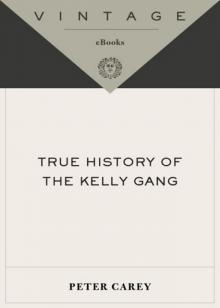 True History of the Kelly Gang
True History of the Kelly Gang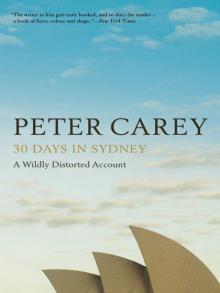 30 Days in Sydney: A Wildly Distorted Account
30 Days in Sydney: A Wildly Distorted Account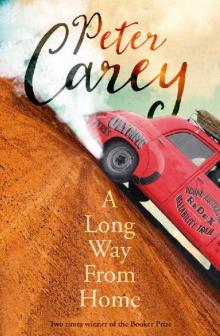 A Long Way From Home
A Long Way From Home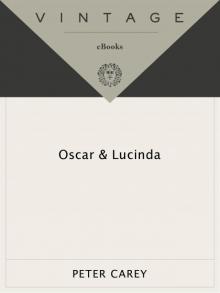 Oscar and Lucinda
Oscar and Lucinda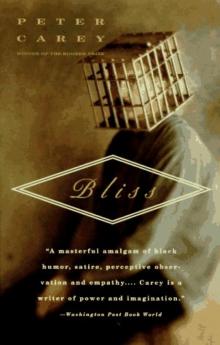 Bliss
Bliss Wrong About Japan
Wrong About Japan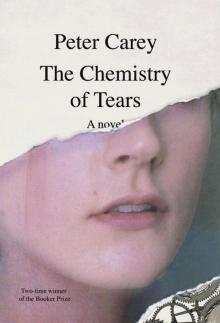 The Chemistry of Tears
The Chemistry of Tears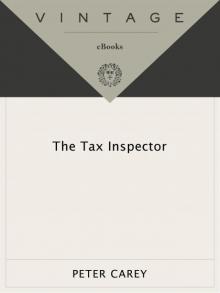 The Tax Inspector
The Tax Inspector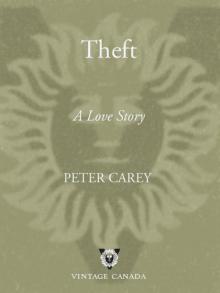 Theft: A Love Story
Theft: A Love Story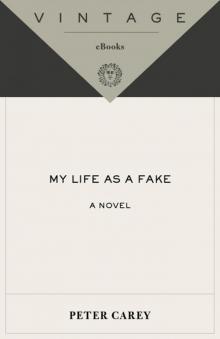 My Life as a Fake
My Life as a Fake Collected Stories
Collected Stories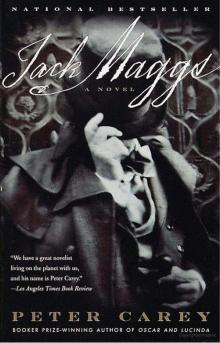 Jack Maggs
Jack Maggs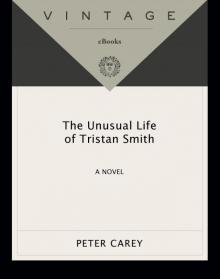 The Unusual Life of Tristan Smith
The Unusual Life of Tristan Smith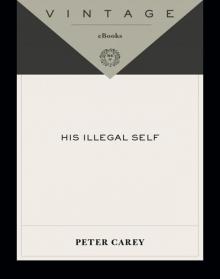 His Illegal Self His Illegal Self His Illegal Self
His Illegal Self His Illegal Self His Illegal Self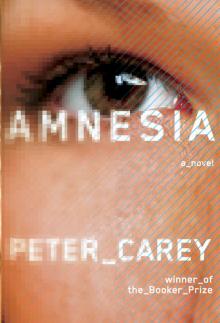 Amnesia: A Novel
Amnesia: A Novel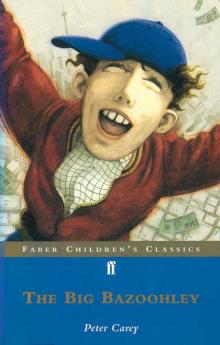 The Big Bazoohley
The Big Bazoohley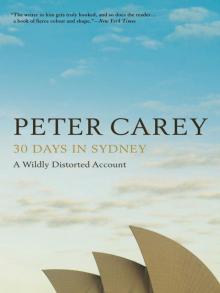 30 Days in Sydney
30 Days in Sydney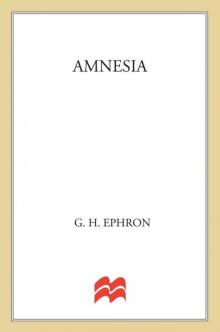 Amnesia
Amnesia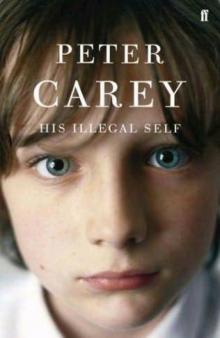 His Illegal Self
His Illegal Self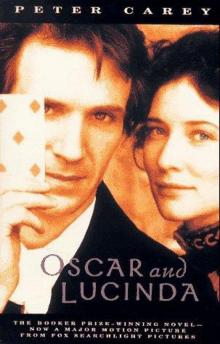 Oscar and Lucinda bw-1988
Oscar and Lucinda bw-1988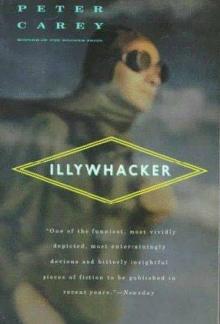 Illywhacker
Illywhacker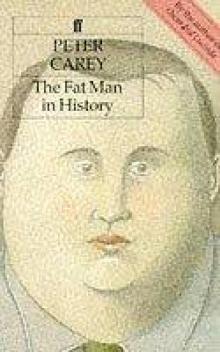 The Fat Man in History aka Exotic Pleasures
The Fat Man in History aka Exotic Pleasures